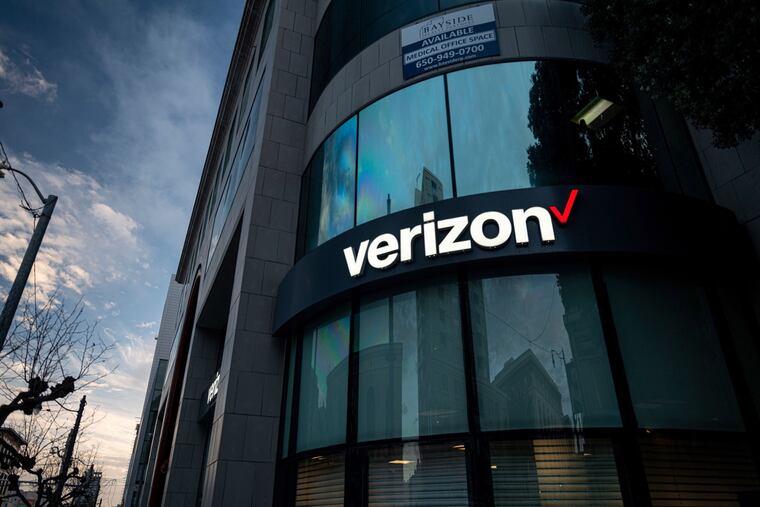Verizon begins 5G internet to Philadelphia homes, competing with Xfinity broadband
Verizon has officially launched its 5G internet-to-home service in Philadelphia. The coverage maps shows gaps but it's taking on Xfinity in Comcast Corp.'s headquarters city.

Verizon has launched 5G wireless home-internet service in Philadelphia. It’s not available to all city residents because of where the company has placed small cell towers on telephone poles and city property. But it is competing with Comcast Corp.’s Xfinity service.
To qualify for a discounted price of $25 a month with Verizon, a new customer must subscribe to a Verizon unlimited mobile plan. Otherwise the price is $50 a month.
5G wireless to homes is the latest battleground between telecom and cable companies. Mobile phone companies have invested in wireless spectrum and small cells to expand high-speed internet services to residences, competing with cable companies that dominate the internet-to-home market with wires.
Comcast’s network is available to 60 million businesses and homes, and it has signed about 32 million to its internet services.
Earlier this year Comcast reported its first-ever decline of residential internet customers, a loss of 10,000 connections in the company’s second quarter. Comcast executives attributed some of that loss to new 5G wireless competition in rural areas, though Verizon and T-Mobile also are expanding into cities and suburban areas.
At the same time, Comcast and cable companies are offering wireless mobile phone services, taking those customers from mobile-phone firms.
T-Mobile says that its high-speed home internet service is available to 40 million residences in the United States, and that it has signed up 1.5 million customers. In the Philadelphia area, the T-Mobile home-internet service — also called fixed-wireless — is available to 530,000 houses, a company spokeswoman said. But customers must check availability.
Nationally, Verizon has 384,000 consumer fixed-wireless customers in the second quarter, up from 216,000 in the first quarter, the company reported. Verizon has sold off most of its wireline-based businesses, though it still owns Fios in the Philadelphia area.
Critics say that 5G is not as reliable as wireline internet such as Fios and Xfinity and that the wireless companies prioritize mobile phone traffic on networks over internet-to-the-home service.
Verizon’s online coverage map shows big gaps in Feltonville, Hunting Park, Allegheny West, Pennsport and other neighborhoods, where the wireless service is available on main roads and in public spaces but not on many side streets within neighborhoods, creating a patchwork of availability.
“People want options,” said Verizon spokesman Andrew Testa. “Most people only have one or two options for home internet.” Verizon’s 5G service will be an additional one, he said.
Verizon officially launched 5G home internet in Philadelphia on Sept. 22. Consumers can go to verizon.com/home to plug in their address and see what service — Fios or wireless — is available to their locations.
Verizon customers are expected to install the home wireless service themselves. The company has posted an instructional video on YouTube to show how.
Verizon doesn’t disclose how many Philadelphia residents have access to the new 5G home-internet service that supplements the wire-based Fios internet service in Philadelphia, the company says.
Verizon agreed to make Fios available throughout Philadelphia with its franchise agreement in 2009 to offer television services. Verizon fulfilled the pledge, the city has said, though there have been complaints that Fios is not available to all Philadelphia residents.
Spokesman Testa said that Verizon continues to expand Fios and 5G in Philadelphia.
“I don’t think that 5G will be a replacement for fiber-to-the-home,” said Brandon Forester, national organizer for the nonprofit advocacy group MediaJustice. “There are a lot of places that lack fiber. In urban areas, it’s the areas that have been redlined.”
5G is cheaper than fiber wires for installation on poles or underground. But Forester said it’s possible that maintenance of 5G wireless systems may be more expensive than fiber networks over time.